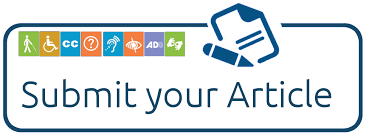THE ROLE OF INFORMATION TECHNOLOGY AND CREATIVITY IN ACHIEVING BUSINESS SUSTAINABILITY
DOI:
https://doi.org/10.55047/jekombital.v2i4.672Keywords:
Business Sustainability, Information Technology, CreativityAbstract
This research investigates how information technology and creativity contribute to the sustainability of businesses run by students enrolled in the Student Entrepreneurship Program at Universitas Jenderal Soedirman. To gather empirical data, a structured questionnaire was administered to 100 entrepreneurial students participating in the program. The sample was selected using convenience sampling, a method often employed in exploratory research to quickly gather relevant data from a readily accessible population. The collected data was subjected to rigorous statistical analysis using the SPSS software, specifically employing the Multiple Linear Regression method to ascertain the relationship between the independent variables (information technology and creativity) and the dependent variable (business sustainability). The results of the analysis revealed a significant positive impact of both information technology and creativity on the sustainability of student-run businesses. Information technology, with its ability to streamline operations, enhance communication, and provide access to broader markets, emerged as a crucial factor in ensuring business continuity and growth. Concurrently, creativity was identified as a key driver of innovation, enabling businesses to adapt to changing market conditions and develop unique value propositions. In light of these findings, the study underscores the importance of optimizing the use of information technology and fostering a creative mindset among student entrepreneurs. To enhance business performance and sustainability, it is recommended that educational institutions and policy-makers support initiatives that provide students with access to cutting-edge technological tools and encourage creative problem-solving.
References
Apriani, K. D. (2019). Pengaruh modal usaha, kreativitas, literasi keuangan, dan pemahaman akuntansi terhadap keberlanjutan UMKM di Kecamatan Buleleng (Undergraduate thesis, Universitas Pendidikan Ganesha, Singaraja).
Aslizadeh, A. (2014). Impact of using information technology on creating a sustainable competitive advantage for companies: (Case study: Golestan food companies). Indian Journal of Fundamental and Applied Life Sciences, 4, 1595–1603.
Bansal, P., & Des Jardine, M. R. (2014). Business sustainability: It is about time. Strategic Organization, 12(1), 70-78.
Fatimah, S., & Azlina, N. (2021). Pengaruh teknologi informasi dan inovasi terhadap kinerja usaha kecil dan menengah (UKM) (Studi pada UKM berbasis online di Kota Dumai). Jurnal Riset Akuntansi dan Perbankan, 15(1), 444-459.
George, G., Merrill, R. K., & Schillebeeckx, S. J. D. (2021). Digital sustainability and entrepreneurship: How digital innovations are helping tackle climate change and sustainable development. Entrepreneurship: Theory and Practice, 45(5), 999–1027.
Gregori, P., & Holzmann, P. (2020). Digital sustainable entrepreneurship: A business model perspective on embedding digital technologies for social and environmental value creation. Journal of Cleaner Production, Article 122817.
Gregori, P., & Holzmann, P. (2022). Entrepreneurial practices and the constitution of environmental values for sustainability. Business Strategy and the Environment.
Komarudin, M., & Hamdani, N. A. (2023). Analysis the effect of innovation and creativity to business success. In Proceedings of International Conference on Business, Economics, Social Sciences, and Humanities (Vol. 6, pp. 1157-1164).
Melville, N. (2010). Information systems innovation for environmental sustainability. MIS Quarterly, 34(1), 1–21.
Nasifoglu Elidemir, S., Ozturen, A., & Bayighomog, S. W. (2020). Innovative behaviors, employee creativity, and sustainable competitive advantage: A moderated mediation. Sustainability, 12(8), 3295.
Rinto. (2019). Pengaruh keterampilan berusaha dan kreativitas kerja terhadap ketahanan ekonomi keluarga yang bermata pencaharian di bidang usaha tenun sarung Toraja di Kecamatan Mappak Kabupaten Tana Toraja. Jurnal Fakultas Ekonomi, Universitas Negeri Makassar.
Saleh, R., & Brem, A. (2023). Creativity for sustainability: An integrative literature review. Journal of Cleaner Production, 135848.
Tanti, & Dewi. (2020). Pengaruh pemanfaatan media sosial, kreativitas dan modal usaha terhadap keberlanjutan bisnis UMKM milenial di Kecamatan Buleleng. JIMAT Universitas Pendidikan Ganesha, 11(2).
Zhao, H., Seibert, S. E., & Hills, G. E. (2005). The mediating role of self-efficacy in the development of entrepreneurial intentions. Journal of Applied Psychology, 90(6), 1265-1272.










.png)




.png)
.png)











.jpg)
.png)


